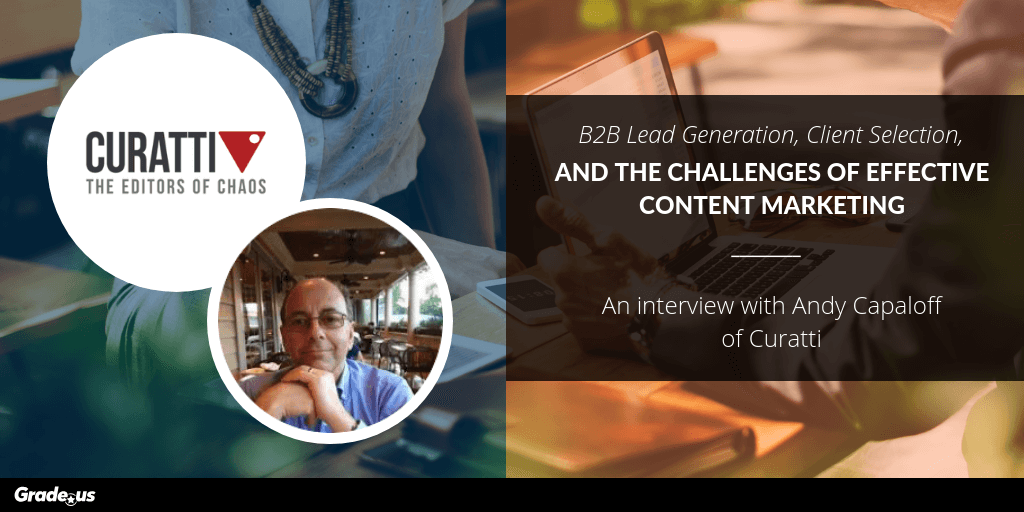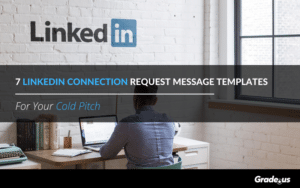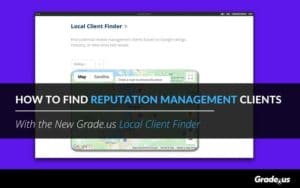After spending 3 decades in IT, Andy Capaloff married Jan Gordon of Curatti and made the switch to Digital Marketing.
He is now a passionate content creator and one of the forces behind the company. Though Jan's name may be more recognizable to readers, Andy's a powerful content marketing expert in his own right.
He was gracious enough to sit down and have a chat with me recently, and it was a great one!
Here's the transcript of our talk. As usual, I've lightly edited it here and there for greater clarity.
Carmen: When you transitioned from IT to content strategy, social media marketing, and digital marketing, how did you ramp up your own education so you became an expert in your field? What were the key resources you relied on?
Andy: So obviously, working with Jan Gordon was very instrumental in my education.
I read a lot of the people who she pointed me to. I don't know if I should really name names here, because I'm going to forget some, and they won't get mentioned. Some really, really good people who she followed and then followed her. A couple of them actually wrote for or allowed Curatti to use their content, and so I got an education that way.
Basically, from admiration of a few people who I read online who really, really knew their stuff.
In terms of my actual writing, well, converting from the type of writing that I used to do to the type of writing that I do now, that wasn't actually as easy as I thought it was.
When I look back at my old stuff, the style certainly isn't what it would be now. I think I've got the content, a lot of it, the style was definitely not where I would have hoped it would be.
No matter how much knowledge you have it takes time to reach.
Carmen: Sure! Now you guys are a dynamic team, you and your wife. What are the primary benefits of working with your partner in life and business, and what were the challenges that you've encountered along the way?
Andy: Well, the challenge, and if I didn't say this then everyone would know that I'm full of it, is that you're together all day, and all night.
You know, people usually, married couples, one or both of them are heading out somewhere for ten or eleven hours a day where they're not together. So being together, working together all day, is something most couples don't deal with. That's an adjustment, it really is.
Working right next to each other, we also have the opportunity to bounce things off of each other in real time. We don't have to wait to get our questions answered if the other person can answer it.
Carmen: Fair enough! Now, as experts in B2B lead generation, how did you guys start finding clients, and for other consultants and agencies who are just getting started, what would you say is the most effective way for them to find clients?
Andy: Okay, well, that one's a bit more tricky.
Because Jan had nurtured a number of friendships. You could call them relationships, but a lot of them turned into friendships. Some of them actually gave her writing jobs when she hadn't even thought for a minute about doing them. So...her start, Curatti's start in terms of lead generation, really was organic, accidentally organic, you could call it.
She wasn't trying to head down a certain road, and because of the way Curatti was starting out, people came to her to do things to do with writing content for them, ghostwriting. Then pulling back from that a little, because of working for giant clients, because the people who came to us were 50/50s, a lot of them had and were writing for major publications.
Again, I don't really want to say too much about what the publications were, for obvious reasons.
We made partnerships, not partnerships, we made alliances. We came upon people who we trusted to work for us. Then we started to do LinkedIn lead generation. We found new clients again. Now, how people start out...if you don't have the organic base that Jan started with, I don't know there's a free route anymore. Not unless you've got a lot of people who can each publicize everything that you do on all of their platforms.
I would say B2B lead generation is about LinkedIn and Facebook, depending on what it is that you're offering.
Some things have come in through Twitter also, purely organically, we've never really looked there, but keeping up a presence brings things in. So, you know, major presence and as much help as you can get when you're first starting out, because you can't grow organically the same way you used to.
Free growth of followers and free lead generation is a lot more difficult to get started on now than it was a few years ago, because the competition is so high. I think everyone knows that.
Carmen: Could you tell me a little bit about how you guys tackled the LinkedIn marketing?
Andy: Yeah. You had to be really, really careful with doing LinkedIn marketing, because you had to strike a balance.
That balance is, when you do your searches [for leads] and you come up with people in certain types of companies within certain positions, company size (and you must obviously get Premium LinkedIn accounts to do that), then you send your outreach messages.
You have to perfectly word and test each message, obviously, but you have to perfectly word an outreach.
You also word a follow-up outreach.
The balance needs to be there, because a lot of people obviously don't like it when you jump into a sales pitch.
Most people don't like it.
On the other hand, if you jump into lengthy conversations then you end up having more hours in the day than you could possibly have, or paying people to just talk to someone.
You can't pay someone to have a long conversation with someone who thinks they're talking to you. That's just not genuine. That's a no-no for us. It has to be you that does the talking, if you're being personal, friendly.
So coming back to the balance. You need to strike up a conversation. People will talk forever. When you ask them about themselves, they'll tell you about themselves.
Unless you have a really good way of bringing the conversation back, you just end up having a lengthy conversation that goes nowhere.
So, is the lengthy conversation that goes nowhere better or worse than the sales pitch that goes nowhere? What comes in between?
And I honestly don't know if anyone's perfected this yet, but it's not an easy thing.
Carmen: I know you said you grew a lot of your clients organically, but you've also done this outreach. Have you ever had clients that came to you from your presence or any of your other efforts that you've turned away as a bad fit?
Andy: Oh, yes!
Carmen: What are some of your criteria for the vetting process that causes you to turn someone away?
Andy: Well, you have to like your clients. You have to get on. Some people have a really rough type of manner, or they'll treat you like, well, "you're providing a service, so this is what I want, do it!" They're very unfriendly.
You don't need to work in an unpleasant manner!
You wouldn't take a 9 to 5 job where, in your interview, they were being nasty to you. At least, I hope not. I hope you've got more self-esteem than that. So, liking the people would be the soonest thing that would stop us.
Also, we're not really trying to promote things like gambling, for example. So, we have certain business things we would steer clear of. We're not going to do work for the sex industry, for example.
From there, it's can we help them? Because some people expect the world, they want to pay peanuts, they want absolute minimum amount of service from you, they think that if they order 4 articles a month, that you're going to put them on the map, and they don't even realize that no one is ever going to find them. They just think, "Build it and they will come!"
Everyone who might read this knows that's kind of laughable. So unrealistic expectations and unfortunately, you know even a lot of people who make a lot of money expect to get a whole lot of stuff for virtually nothing.
Carmen: (Starts laughing softly). Right?
Andy: You're laughing because you recognize the truth in that.
Carmen: Yes! I've been there.
Andy: So, unfortunately there are more reasons things don't work than reasons why they do. And if you're in this you just have to accept you're not going to convert the majority of leads. The real task is keeping happy the ones you can convert.
Carmen: Makes sense to me! Do you have an on-boarding process or protocol you're using when you're bringing on new clients?
Andy: Yeah, we're converting back actually to Hubspot CRM.
We put people in a CRM, pretty much as soon as we have an email address. You're never going to keep track of everyone if you don't do that.
Unless your outreach is really, really, really not working and you end up with three or four people. You don't need a CRM for that.
Carmen: Once you've got them in the CRM, and once you've started that conversation, what do you do to take that effective client relationship?
Andy: Well, we nurture.
We're speaking with people. We always encourage a phone conversation.
The sooner you get people on the phone, the easier the process becomes.
But, you know, we try and work things around to where we have a phone conversation, where they want to talk to us, because of course we want to talk to them.
There's never any pressure.
We're trying to find out what is they need. Not everyone answers the questions you ask, and some people, sometimes you ask a question and people don't get back to you, so the CRM lets you know when to get back to people. They've given you their email address.
You're not just going to let them slide because they don't respond to one email, but you're also not going to email them every day.
Carmen: Makes sense. Switching gears a little bit, content marketing and content strategy is a long game. So how long did it take you to see results in your content marketing efforts for the Curatti blog, and what did success look like to you?
Andy: Well, ultimately, success is when people come to you and want to buy services.
That's monetary success.
What felt like success to us is when people were reading and sharing our content, and when they talked to us, whether it was on Twitter, or Facebook, or unfortunately there aren't as many comments as most content writers would prefer on blogs,
But success is when more people come to you and more people engage. Then you get someone who you have looked up to.
I don't think I'm supposed to use that term, but it's true. Someone you've looked up to comes on to the site and interacts with you. That's always a great thing. As a writer, that recognition is success.
Carmen: Yeah, absolutely! Do you have any metrics you're tracking, or did you mostly gauge it that way?
Andy: We used Clicky, we used Google Analytics, and seeing our numbers go up, of course, you know, it's about your readership.
So ultimately numbers are more important than however many influencers talk to you, or follow you. It's still a type of recognition from someone who is a leader.
You know, maybe it's not the thing where you're supposed to say this, but sure, that feels good! I'm sure it works the other way too. More Jan than me, because she has a far bigger following than me, but I'm sure it's exactly the same when she follows or talks to people who have been up-and-coming since she's been doing this that they feel the same way!
It's natural, surely.
Carmen: Absolutely. And of course it takes a lot of time to see results in content marketing, so when you're working with clients, how do you set their expectations on your content initiatives?
Andy: Well, they're not going to have instant gratification.
They're not going to instantly have 10,000 Twitter followers or hundreds of people reading their blog every day. That's just not going to happen. They have to establish leadership and trust. That doesn't happen overnight.
So, they need patience. They need to establish a voice.
We need to really, really impress on them: we can't do this in one month, we can't do this in three months.
This is an ongoing thing. If you look at the successful blogs that have been going for a long time, you can't just put content out there and expect people are going to come to your website. That they are going to buy whatever it is that you're selling. It takes time.
Carmen: If you do have an impatient client, do you have any advice for "quick wins" that can hold them over and calm them down while you're waiting for the long game to play out?
Andy: There are no free, quick wins.
If they want to stick with just what they're doing now, they've got a rough path ahead to enlightenment.
If they want to spend money on social media ads, then that's a quick win. But they need to broaden their horizons.
You can't, all of a sudden, quickly grow something that grows organically unless you break out, branch out and do something else. Video will help, but you've got to put that video on social media.
But again, just content writing? No. We have to tell them, "Sorry, but your 100 readers a day are not going to become 500 readers a day this time next month."
You have to do something else.
Carmen: Very true! Do you ever help your clients out with user-generated content?
Andy: We haven't created user-generated content for people.
They come in and they want to, it's a very good suggestion. That would cost them a lot more money. You're talking about a whole campaign. You're talking about bringing people in who wouldn't normally come in, whether you're offering something to them to send in their thoughts or to generate some content for you.
Again, going back to the last point, it's not free, it's not within the realms of what they think they signed up for, and the unrealistic ones think is going to make them a superstar.
We would tell them to do that. We would. And we would tell them we could do it for them.
But. They have to be patient, and they have to spend some money.
Carmen: That's never what they want to hear!
Andy: They never want to hear any of that stuff!
Carmen: Now in your opinion, where do online reviews come into play, how do they work with content and social media marketing. Do you think agencies should be including review management in their offering, or would you say to stick primarily to content marketing and social?
Andy: They need reviews. If you're selling something, you need reviews. It's a type of word-of-mouth.
I don't know that everyone reads them, I don't know that everyone trusts them, but nevertheless, if you have some compelling reviews telling people that your business has helped someone, then they might get the impression that you can help them also.
It's not as good as word-of-mouth from friends or colleagues, but it's the best you're going to get for people that are coming to a website, and it's an opportunity missed if you're not putting any on there.
Carmen: One more question before I let you go. What predictions do you have for the future of social media marketing and content for businesses, do you see any trends emerging that will be impactful in 2019?
Andy: Not 2019 specifically.
Every year, everyone thinks there's going to be major changes, and they do all their prediction pieces. They're not quite the same as New Year Resolutions. Not quite as futile. They might be right sometimes.
But don't expect major, earth-shattering changes in content marketing within a 12 month period.
What you see is a trend.
There is a definite trend towards video, and there is a definite trend towards ephemeral content, which probably doesn't work for everyone. A small company producing that, it's gone in however long. They really have to think about what their bandwidth is and if their audience is receptive to that. Just because people do it doesn't mean it's going to be good. You have to know your audience is going to be there, and is going to see it.
Longer-term, you know, I've gotta confess, and I'm sure there are always people who always say this, but the idea that 80 or 90 percent of content is going to be video by next year is, I think the original predictions for that were maybe this year or 2020, and we're not quite going to be there, are we?
Honestly.
Because video is a bit more intrusive than written content. Maybe rather than saying, video is a growing trend, it's video with captions.
You'd better not put out a video if you don't have subtitles on it.
I can sit here in a work day and watch a video with captions and not disturb Jan. She can do the same, and not disturb me. We put the sound on, and the only way we're going to get benefit from it is by putting the sound on, then there are only certain times of day we can do that, and there are only so many hours in the day where we can actually watch and listen to video. It's an all-consuming thing if you're really consuming it right.
So, there has been a trend towards more subtitles in videos. I will predict that it will tick up, not the percentages. I'm not going to say "90% of content, blah blah blah, I hate that stuff."
Carmen: Well thank you so much for your time today, I really appreciate it.
Andy: And thank you.
About the Author
Raney C. Hudson
Raney C. Hudson is an independent content consultant with a 10+ year track record in the digital marketing industry.











